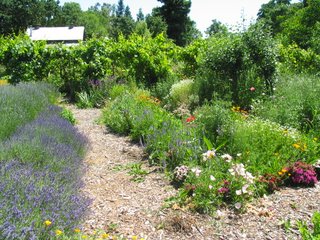Divorce and Enlightenment
Failing means that something didn't work.
That means you tried something.
The trick, and the deep trick, is to get excited about
1. having tried
2. what you set out to do
3. how you undermined, or didn't understand, how to achieve what you set out to do
Notice this doesn't say: figure our how your partner made it impossible for you to achieve what you set out to do.
And notice we are begging the question of most people not really knowing what they are setting out to do when they enter a relationship or a marriage.
So, having a vague idea of "happiness and a family," or "true love," or at best "mutual support," things get ragged at times, and since we have parents who usually didn't have fine and kind and awakened ways of dealing with issues, we fall back on bad models of behavior.
And get bad results.
And still : we tried for something.
Admit it. You tried.
If the aim wasn't clear ( and a negative formulation: not so much fighting, someone who doesn't put me down), let's get excited: what could our aim have been.
Here's some gold in divorce: what did we really want and were afraid to say aloud
( and gads, admit this, too, that we were too lazy to search for a non negative formulation of what we wanted).
What did you want?
What did you wish you'd said you'd wanted?
And here's more gold: what were you wanting from the other that you were not yet willing to give to yourself.
Say you don't appreciate yourself. And yet you were waiting around for your partner to appreciate you.
Or, you aren't particularly happy. And you are annoyed with (yes and unhappy about) your partner being unhappy
All this has a quick, straightforward and more or less guaranteed "cure" via the Work of Byron Katie.
Was doing this work a part of how you set about to accomplish the goals of your relationship?
Will it be part of your next relationship?
And what has this got to do with enlightenment?
Enlightenment is being present. To the now.
It is letting go of stories about how reality should be different than it is. And one of the major places that we love to complain about and demand that reality be different is in our relationships.
So we can take divorce, and it's accompanying pain, as a grand opportunity to realize who we could be when we let go of our "story" about this other person,
instead of doing the usual "my X was a jerk/ sociopath/ dope/ abuser/ creep" and discover how our judgments and demands and criticisms and inability to listen and withdrawing and attacking, how we piled fuel on the flames of unhappiness.
We can learn to have unconditional love for this person who we have separated from.
In a way that's easier, since their so called "annoying" traits we don't have to live with day to day.
But if we can't love everything about them, we don't know how to love yet.
And to be enlightened is to love reality. If this person isn't breaking laws and physically hurting people (in which case their are police person about, ready and willing to help them stop), then we should be able to love them from afar.
If we can't, the news is sad: we can't love ourselves.
Which means we aren't ready for a new relationship yet.
Which means we aren't ready for happiness yet.
Happiness is not necessarily the goal of life, but not being happy is always a sign that we are not in the present and not in love with life.
In other words, not enlightened.
Weird to give enlightenment the freight of taking us out of our misery, but guess what? That's what our misery is for: to wake us out of our trance and get us to work on the real work of letting go of our judgments about ourselves and others.
And the first step, according to the work of Byron Katie, is to be honest. To judge.
Judge yourself and your neighbors.
Write it down
Ask four questions.
Turn it around
Good. If you are divorcing or in a troubled relationship, do the work, or keep suffering, or hide from it in jogging or overeating or new sex or lots of movies or overworking.
Life is choices.
I think to wake up one is best, and you get to decide for you.
Labels: happiness, Loving What Is, the work of Byron Katie, waking up










